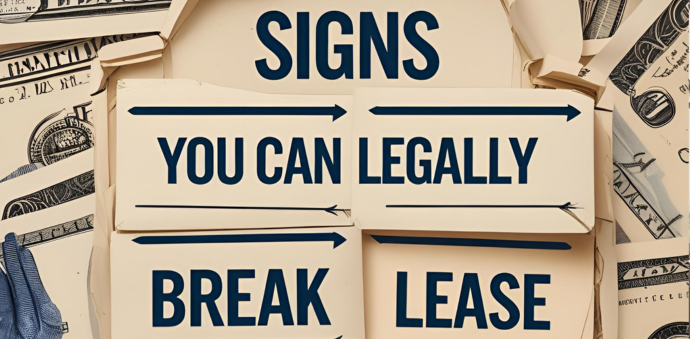
Sometimes unexpected situations or unsafe living conditions can make continuing your lease impossible. If you’re wondering when you can legally break your lease without penalty, it’s important to understand the signs and your rights to protect yourself.
This post outlines common scenarios where tenants have legal grounds to end their lease early, how to proceed responsibly, and when to seek professional help.
If your rental has serious health or safety issues, like mold, lack of heat or water, electrical hazards, or pest infestations, that your landlord fails to fix within a reasonable time, you may have a legal right to break your lease. This is often called constructive eviction, where the landlord’s neglect effectively forces you out.
Repeated landlord harassment, intimidation, or unlawful entries can violate your rights and allow you to terminate your lease early. If your landlord creates a hostile or unsafe environment, you don’t have to stay.
Under laws like the Servicemembers Civil Relief Act (SCRA), active-duty military members can break leases without penalty if ordered to relocate. Additionally, some states protect tenants fleeing domestic violence or victims of stalking or harassment.
If the landlord breaches the lease terms or your tenant rights, such as failing to provide agreed-upon services or violating privacy laws, you may have grounds to end your lease.
Sometimes your lease contract contains an early termination clause allowing you to break the lease by paying an agreed fee or giving proper notice. Alternatively, negotiating a mutual lease termination with your landlord can provide a clean break.
Breaking a lease without valid legal reasons or proper notice could lead to:
Always weigh these risks and consider negotiation or legal counsel first.
Breaking your lease can be daunting, especially if it’s due to hardship or unsafe conditions. Contact us today for a free consultation. We can review your situation, explain your rights, help you gather evidence, and guide you on the safest, most effective way to break your lease legally and fairly.
Don’t let uncertainty or fear trap you in a bad living situation. Reach out now for clear advice and strong support.
Read: Landlord refuses to make emergency repairs – what are my options?